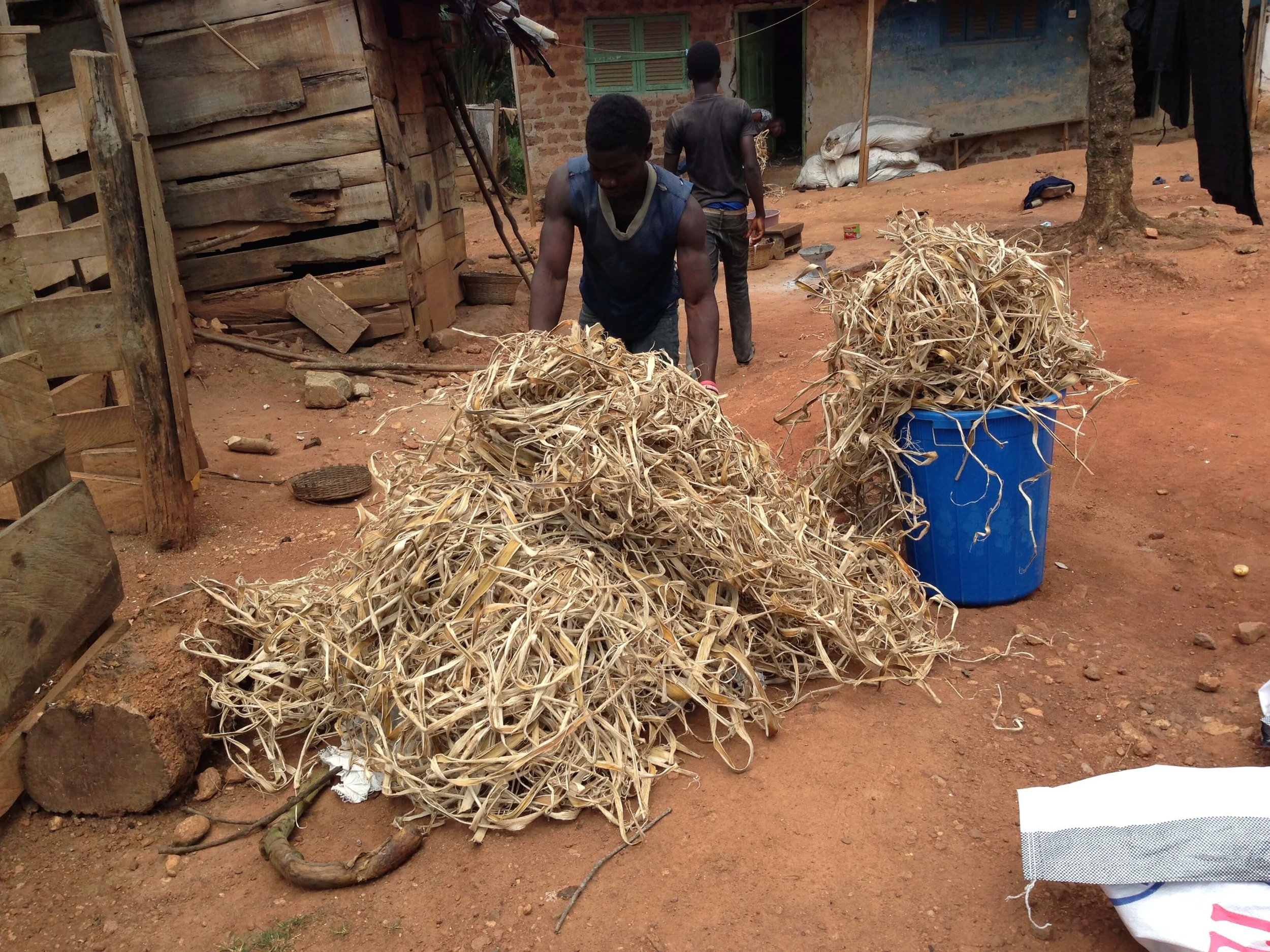

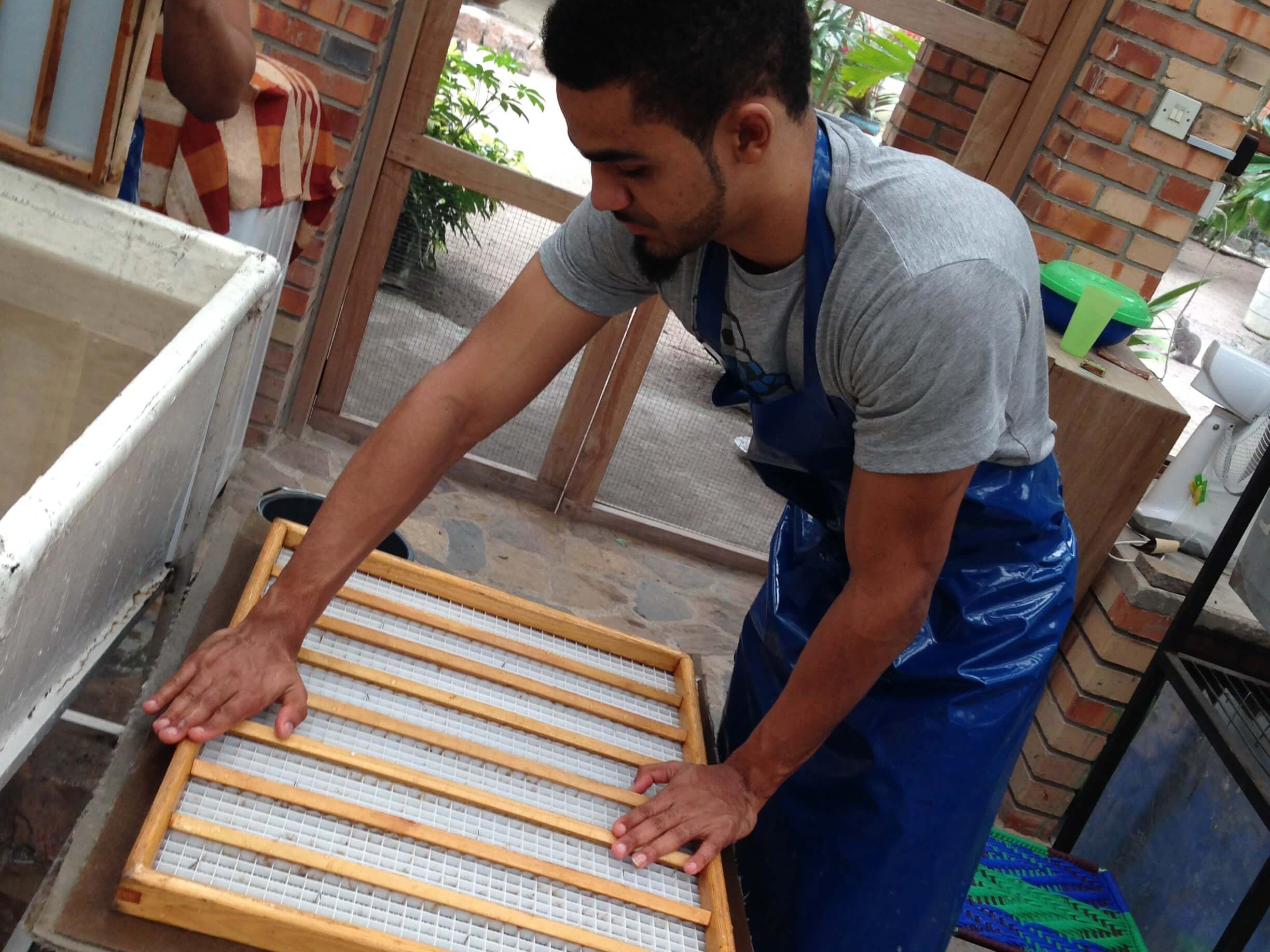
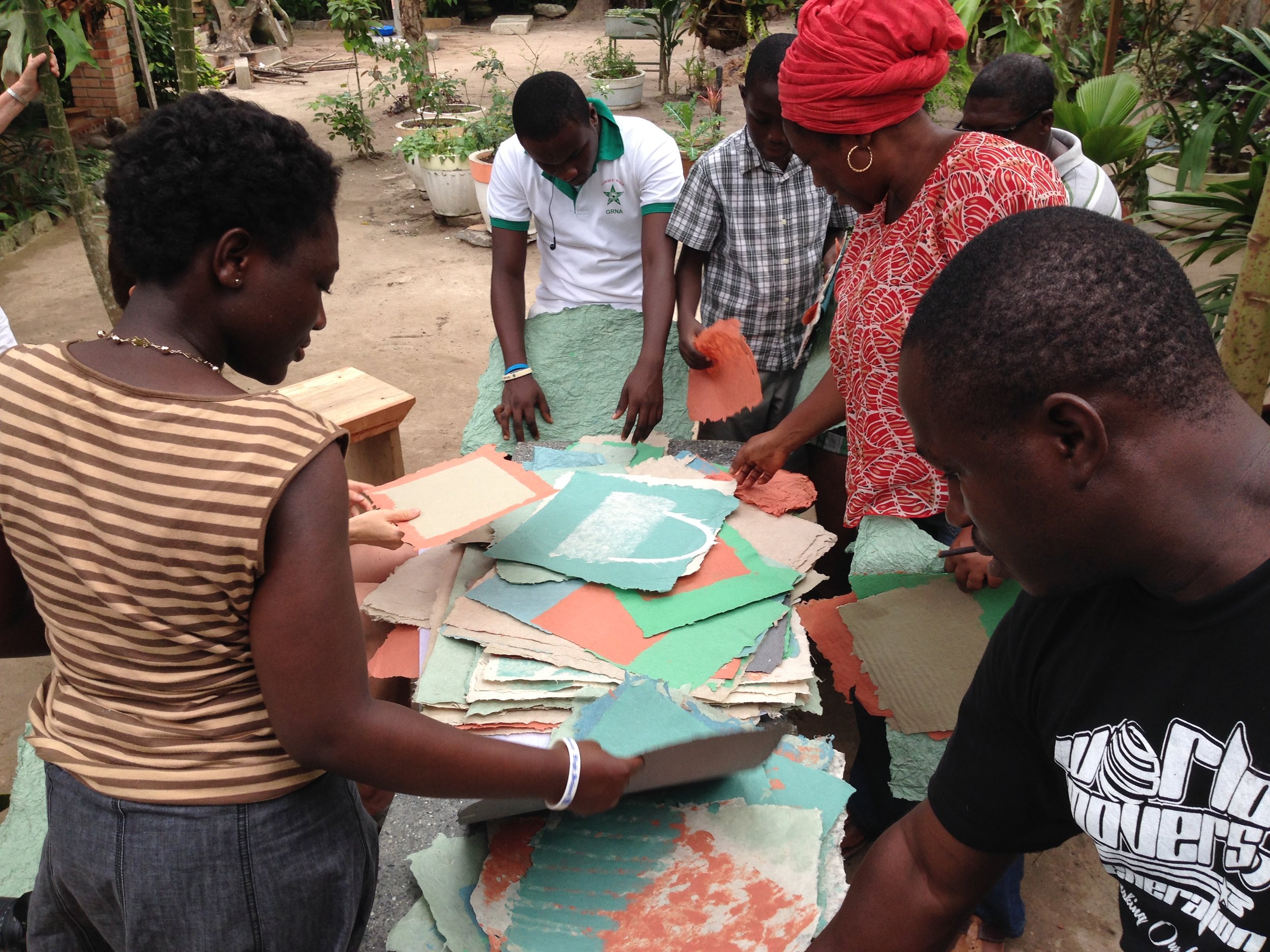
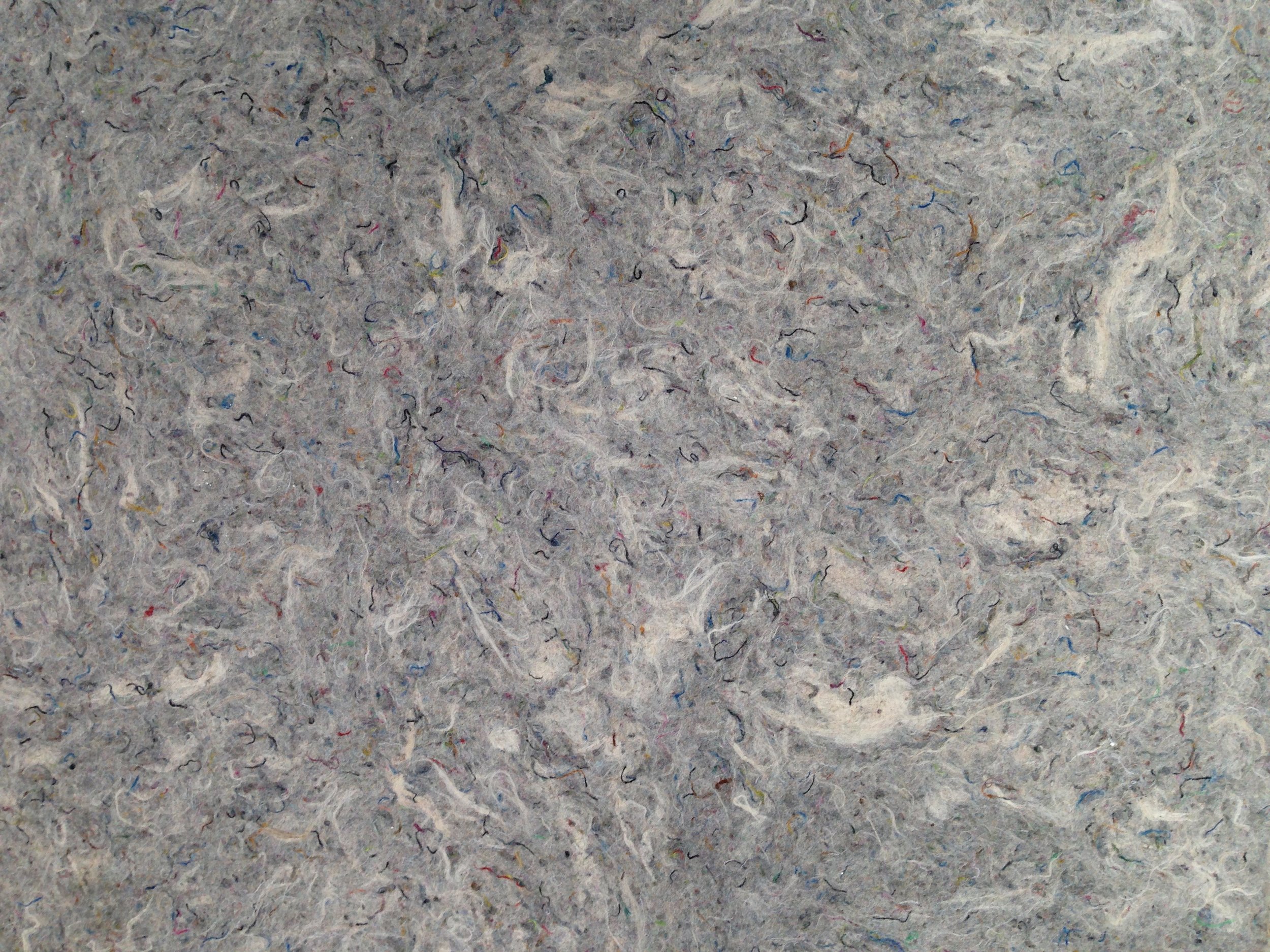

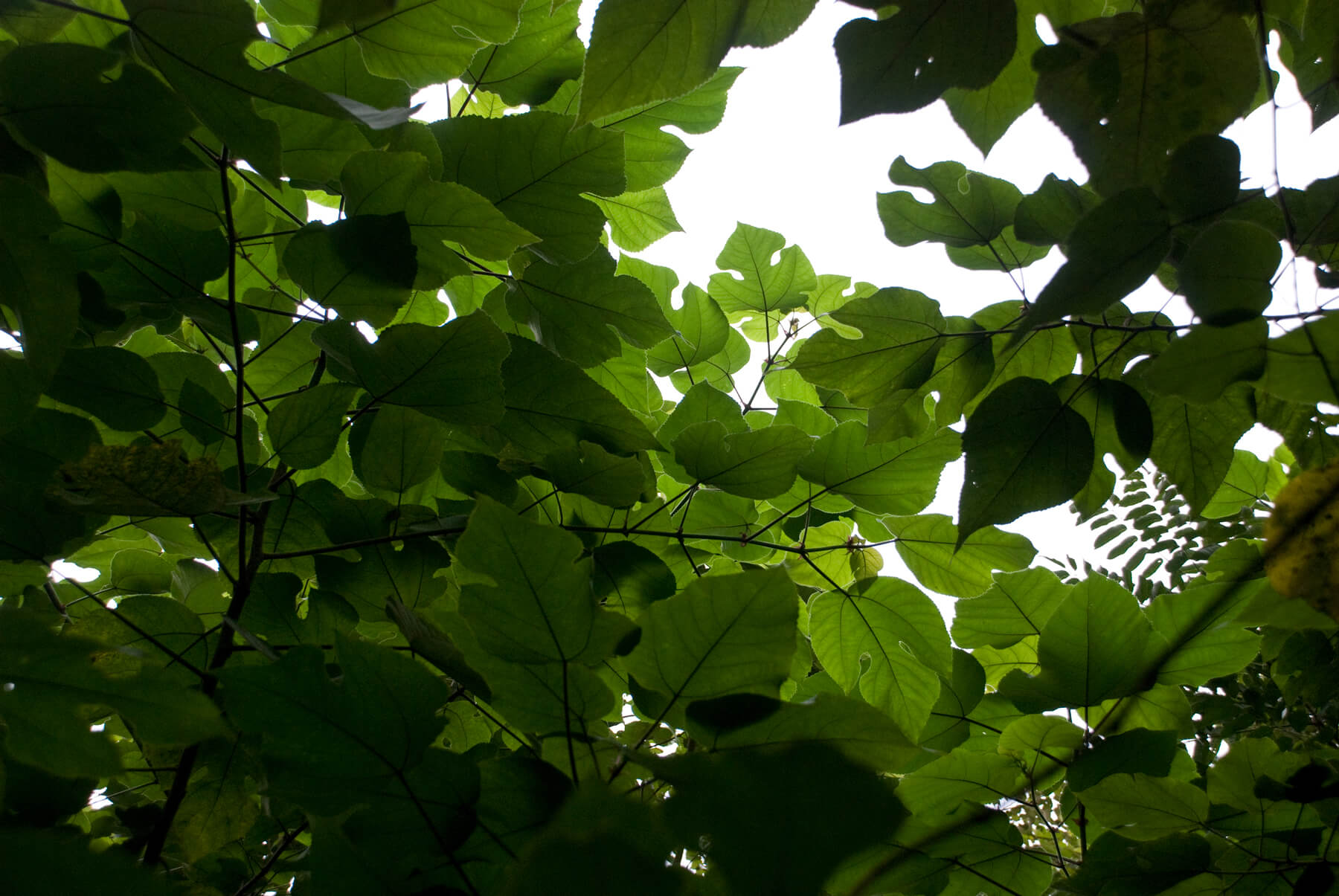
Our Story
In 1969 fourteen pulp-mulberry plants arrived in Ghana from China and were planted in a forest reserve near Kumasi with the intention of evaluating their potential for cottage industry paper production. When the project was dropped during political upheaval, and changing climate conditions provided ideal growing conditions, the pulp-mulberry began to thrive becoming the most serious, invasive, non-indigenous woody plant in the closed forest zone of Ghana. Currently, the Ghanaian Forestry Commission reports “serious damage to the natural environment, local agriculture, and human health and infrastructure”. Various means of controlling it including burning acres and acres, have yielded limited success.
While pulp-mulberry is one of the primary raw materials for high quality paper worldwide, in Ghana it has been identified as a seriously damaging invasive plant whose productive use has not been harnessed. Its potential as a high-quality art material and commercially viable product is an undeveloped opportunity.
Since 2009, Mary Hark along with collaborators from environmental, educational, business and cultural sectors in Ghana, have been developing and producing handmade papers using the invasive pulp-mulberry in combination with other Ghanaian botanicals and textile waste from the lively local fashion industry. This research has yielded several successful bodies of work including: a portfolio of high-quality handmade papers suitable for a variety of artistic and functional purposes; a collection of functional, artistically-designed objects covered in handmade paper (folding screens, lamps, etc.) produced in collaboration with local craftsmen; and a limited edition, fine press artist book using papers Hark developed in Ghana.
Currently, The Ghana Paper Project is establishing a self-sustaining papermaking enterprise that will employ a local workforce in the harvest, preparation and production of high-quality handmade paper. We are developing training strategies for workers in all aspects of production and management, as well as inviting designers to collaborate in product development. While we are primarily focused on local markets, we are available to collaborators from other parts of Ghana, Africa and internationally.